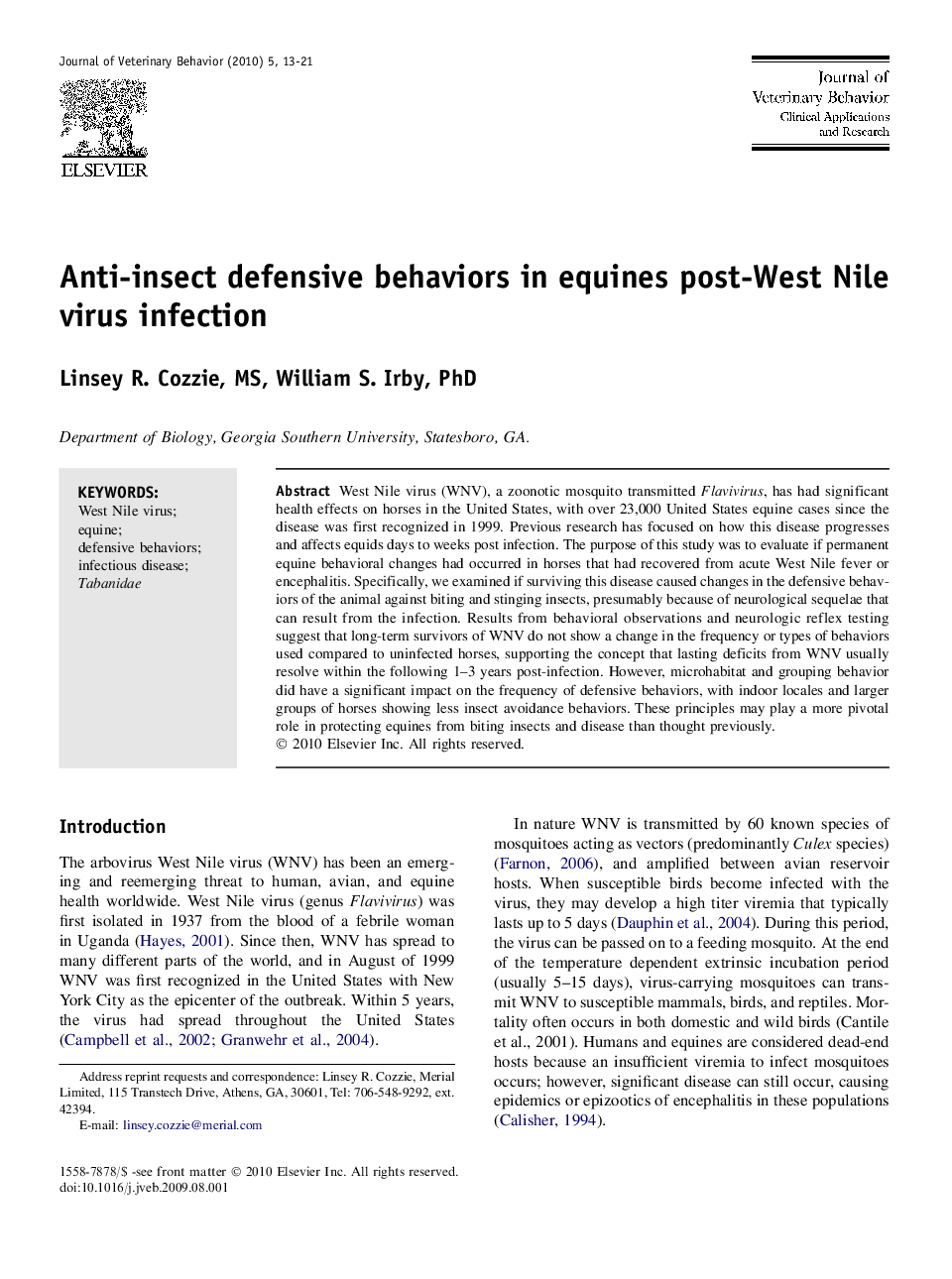| Article ID | Journal | Published Year | Pages | File Type |
|---|---|---|---|---|
| 2399289 | Journal of Veterinary Behavior: Clinical Applications and Research | 2010 | 9 Pages |
West Nile virus (WNV), a zoonotic mosquito transmitted Flavivirus, has had significant health effects on horses in the United States, with over 23,000 United States equine cases since the disease was first recognized in 1999. Previous research has focused on how this disease progresses and affects equids days to weeks post infection. The purpose of this study was to evaluate if permanent equine behavioral changes had occurred in horses that had recovered from acute West Nile fever or encephalitis. Specifically, we examined if surviving this disease caused changes in the defensive behaviors of the animal against biting and stinging insects, presumably because of neurological sequelae that can result from the infection. Results from behavioral observations and neurologic reflex testing suggest that long-term survivors of WNV do not show a change in the frequency or types of behaviors used compared to uninfected horses, supporting the concept that lasting deficits from WNV usually resolve within the following 1–3 years post-infection. However, microhabitat and grouping behavior did have a significant impact on the frequency of defensive behaviors, with indoor locales and larger groups of horses showing less insect avoidance behaviors. These principles may play a more pivotal role in protecting equines from biting insects and disease than thought previously.
